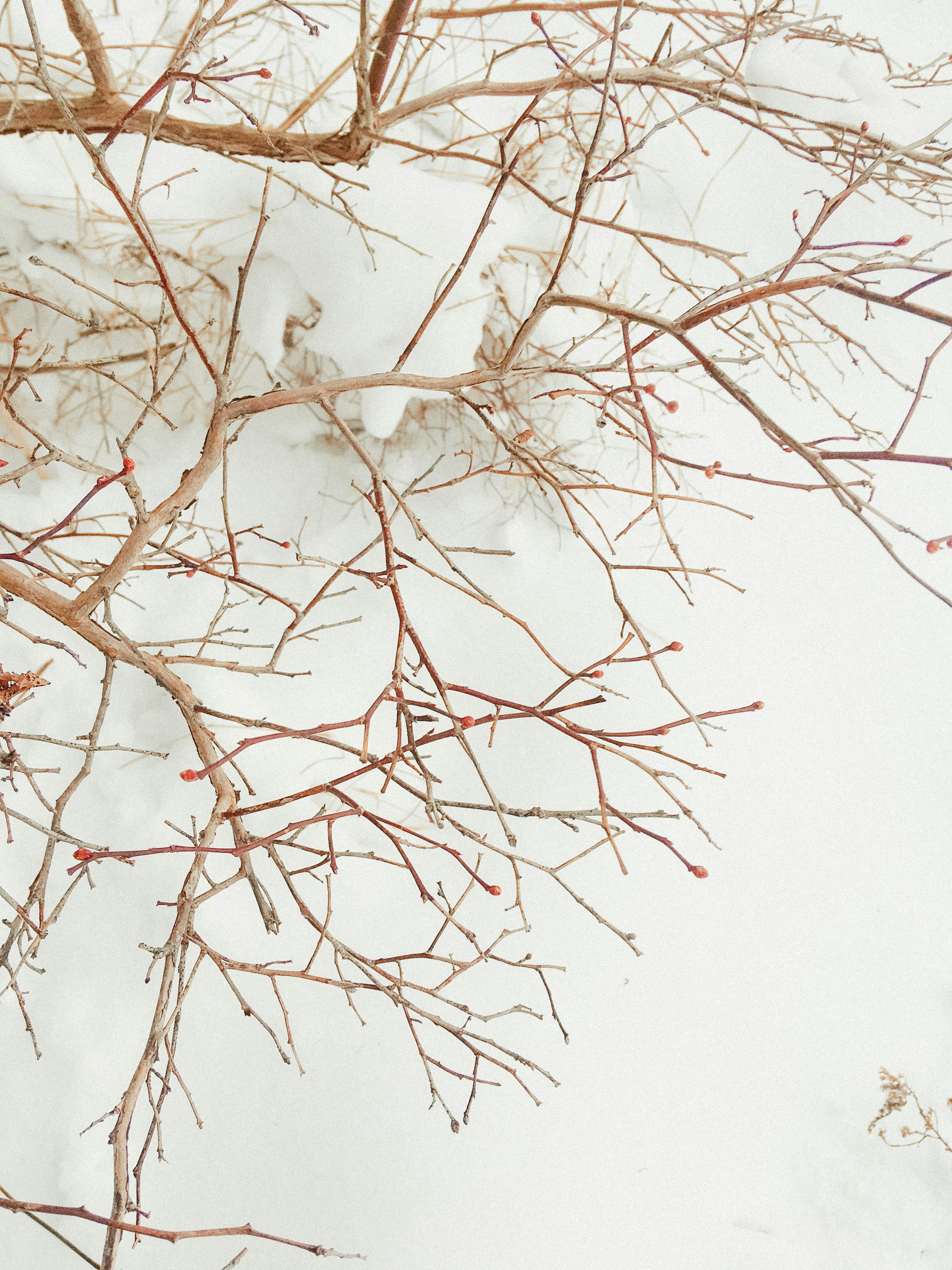Thoughts on how neurodiversity weaves together within my Polytheistic Monastic practice.

(Image description: A photo of thin tree branches against a snowy background. They have small buds on them and reach out toward another plant on the right side of the image.) Credit: Photo by Preethi Viswanathan on Unsplash
Recently, I listened to a podcast episode from the BBC titled, Beyond Belief: Embracing Neurodiversity, at the suggestion of a friend. Within the context of the episode, the guests each belong to a monotheistic faith. They discuss how their respective communities adapt things like religious services or theological concepts for neurodivergent people, especially children. Topics like these will vary widely in polytheistic and animistic settings and perspectives.
I could summarize each of the guests’ experiences and viewpoints, but this isn’t like a book review. I’d rather go over my experiences and how it could relate to the theme. However, I did like a point that the host, Giles Fraser, makes when he comments that everyone is neurodiverse. I feel that he is more or less correct. No two people think or perceive the world exactly alike, regardless of a formal diagnosis or not. I also enjoyed how each of the guests explained how worship was adapted to suit each individual’s needs or understood that they were still able to connect with the Divine in their own way.
With my own experiences, I’ve always had an intense interest in religions and world mythology in general. They’re deeply entwined with cultures, so I always thought that learning about different beliefs could offer an understanding into how they worked.
Due to this, I knew I was something of an oddball among my Christian peers of that time period in my life. Later on, I felt like my deeply ingrained desire to research relevant topics stands in contrast to other practitioners who don’t find spiritual fulfillment within books and articles. While I understand the importance of actively carrying out more mystical practices, delving into a topic that grabs my attention feels like discovering a Mystery of sorts, which is sacred in its own way. Nothing is wrong with either aspect, but one feels more innate to me than the other. As a side note, I am actively working on branching out into spiritual practices to balance out the studying.
Another aspect that relates to neurodivergence and Polytheistic Monasticism are the concepts of repetition and silence, which are also discussed in the podcast. I’ve always had difficulty adapting to the overarching tendency toward group ritual. I like simplicity, with its slower pace, the quiet atmosphere, and the ability to be flexible in a religious context. The prayer routine has become a foundation in my daily life, and I feel a bit lost when I occasionally forget to say a prayer.
Now, I’m sure that these personal perspectives aren’t without their issues, and I fully accept that. On the other hand, my path is my own, and what I do most likely won’t work for others. I never intended for it to be that way.
There may be other aspects of neurodiversity within my path, but these couple parts are the most notable ones. I don’t find them to be a hindrance, but they are boons in how I connect with my deities and learn more about Them.
Overall, discussion about neurodiversity in Pagan and Polytheist spaces is greatly lacking. To be more inclusive, people have to be willing to think outside the box and not make neurodivergent devotees feel like they’re not connecting to the Divine in the “right” way. It’s similar to how humans are able to adapt to new technologies, so why not apply this to spiritual concepts or meditation techniques (as examples)? There is no set method on how to be a Polytheist or a Pagan, and I really think it’s time we all acknowledged that and embraced a broader viewpoint that welcomes different ways of understanding the deities, ancestors, and other spirits in our traditions.
Leave a Reply